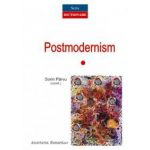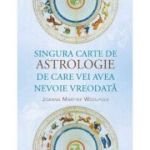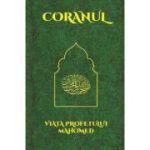DRAMATIC POETRY. THE MYTHICAL MODE [II]
![DRAMATIC POETRY. THE MYTHICAL MODE [II]](https://comandacarti.ro/site_img/products/400/2010/04/mythicalmode2-euro.jpg)
Preț: 35,00 lei
Disponibilitate: stoc indisponibil
Autor: Sorin PARVU
ISBN: 973-611-294-2
Editura: INSTITUTUL EUROPEAN
Anul publicării: 2003
Pagini: 264
Format: 61x86
DESCRIERE
DRAMATIC POETRY. THE MYTHICAL MODE [II]
The mythical mode, populated by gods and demi-gods, is based in the Bible (II.1.1.1 -II.3.1.1), Celtic/Norse/British mythology (II.1.2.1-II.3.2.1) and Hellenic/European mythology (II.1.3.1-II.3.3.1). The movement within each of these three sections is downwards: from Herbert's 'witty language' (The Church) through Donne's 'beating out of a piece of gold' (Divine Poems) to Hopkins's 'writing in blood' (The Terrible Sonnets); from Keats's travels 'in the realms of gold' ("On First Looking into Chapman's Homer") through Swinburne's look into 'the bitter and vicious loveliness' of a woman's 'cheap' face ("Faustine") to Browning's search into 'the hidden truth' ("Caliban upon Setebos"); from Jonson's 'glorious ornaments' ("Diana") through Wilde's 'bitter taste of love" ("The Sphinx") to Hardy's 'clash of peoples' (The Dynasts). Down the list too, myth (counterdramatic and consequently counterdemocratic because adverse to multivoiced visions) is sensibly eroded (de-bunked) on the way, eventually taking on its light (rising tone) / humorous (II.2.1.1-II.2.1.5; II.2.1.21; II.2.3.1-II.2.3.2) and mock (falling tone) / satiric (II.3.1.1; II.3.2.1; II.3.3.1) forms.
The mythical mode, populated by gods and demi-gods, is based in the Bible (II.1.1.1 -II.3.1.1), Celtic/Norse/British mythology (II.1.2.1-II.3.2.1) and Hellenic/European mythology (II.1.3.1-II.3.3.1). The movement within each of these three sections is downwards: from Herbert's 'witty language' (The Church) through Donne's 'beating out of a piece of gold' (Divine Poems) to Hopkins's 'writing in blood' (The Terrible Sonnets); from Keats's travels 'in the realms of gold' ("On First Looking into Chapman's Homer") through Swinburne's look into 'the bitter and vicious loveliness' of a woman's 'cheap' face ("Faustine") to Browning's search into 'the hidden truth' ("Caliban upon Setebos"); from Jonson's 'glorious ornaments' ("Diana") through Wilde's 'bitter taste of love" ("The Sphinx") to Hardy's 'clash of peoples' (The Dynasts). Down the list too, myth (counterdramatic and consequently counterdemocratic because adverse to multivoiced visions) is sensibly eroded (de-bunked) on the way, eventually taking on its light (rising tone) / humorous (II.2.1.1-II.2.1.5; II.2.1.21; II.2.3.1-II.2.3.2) and mock (falling tone) / satiric (II.3.1.1; II.3.2.1; II.3.3.1) forms.
Accesul clienţilor
-Promoţii
-- 118,80 leiPRP: 132,00 lei
- 47,20 leiPRP: 59,00 lei
- 42,75 leiPRP: 45,00 lei


![DRAMATIC POETRY. THE MYTHICAL MODE [I]](https://comandacarti.ro/site_img/products/150/2010/04/dramaticpoetry-euro.jpg)









RECENZII